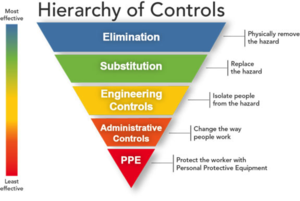A happy, healthy workforce is imperative for the success of any organisation. UK employees will work an average of nearly 85,000 hours in their lifetime [1]- the equivalent for spending approximately a decade working solidly night and day. Looking after our wellbeing and the wellbeing of our colleagues is therefore essential.
Job Crafting my way to the HR Job I wanted within the NHS
Building better work – the IKEA Effect
Most us will have experience of self-assembling something. You can buy ‘flat pack’ kits to build almost anything, ranging from houses and cars to bookshelves and desks. For some it can be a joy, for others (myself included) it can sometimes be a bit of a struggle.
But what can our experiences of self-assembly teach us about work? It turns out that the role we play in constructing something, changes our relationship with it.
Ultimately, we value what we build.
What's wrong with resilience?
It seems like everyone, and every organisation, wants to become more resilient at the moment.
When I’m asked to talk about, and train people, on building resiliency, I find that I’m often starting at a disadvantage.
The ideas that people have about what resilience means - at least from a scientific perspective - are often both mistaken and fixed. The common misconception about resilience is that it is the ability to remain strong, stoic and defiant in the face of challenge and adversity.
Emerging trends in Positive Psychology
Attracting amazing humans and keeping them happy - 5 tips
Last month, I partnered with the fabulous Michelle Minniken to deliver a session to budding and seasoned entrepreneurs on how to attract and retain amazing humans. We gave participants our top 5 practical tips informed by our personal experiences and the latest organisational and positive psychological research.
Does wellbeing have a (high) visibility problem?
I think that wellbeing or wellness activities often fall into the same area as hard hats, safety boots and high visibility clothing.
Whilst well intentioned, wellbeing initiatives are often delivered individualistically and in isolation with little thought to how, and whether, they make a difference to the overall health, happiness and overall performance of people in an organisation.
So what can we do? Here are 3 ideas to explore if you want to explore a truly holistic wellbeing approach for your organisation.
Is the whole greater than the sum of its parts?
For most of us, being part of a team is a key part of our working lives. According to the Bureau of Labour Statistics, today’s youngest workers will hold an average of 12 - 15 jobs in their lifetime.
I’ve been lucky enough to explore team development through my occupational psychology research[1]. And I’d like to share some key findings – what makes teams highly effective, and how these factors can be used in your everyday work.











